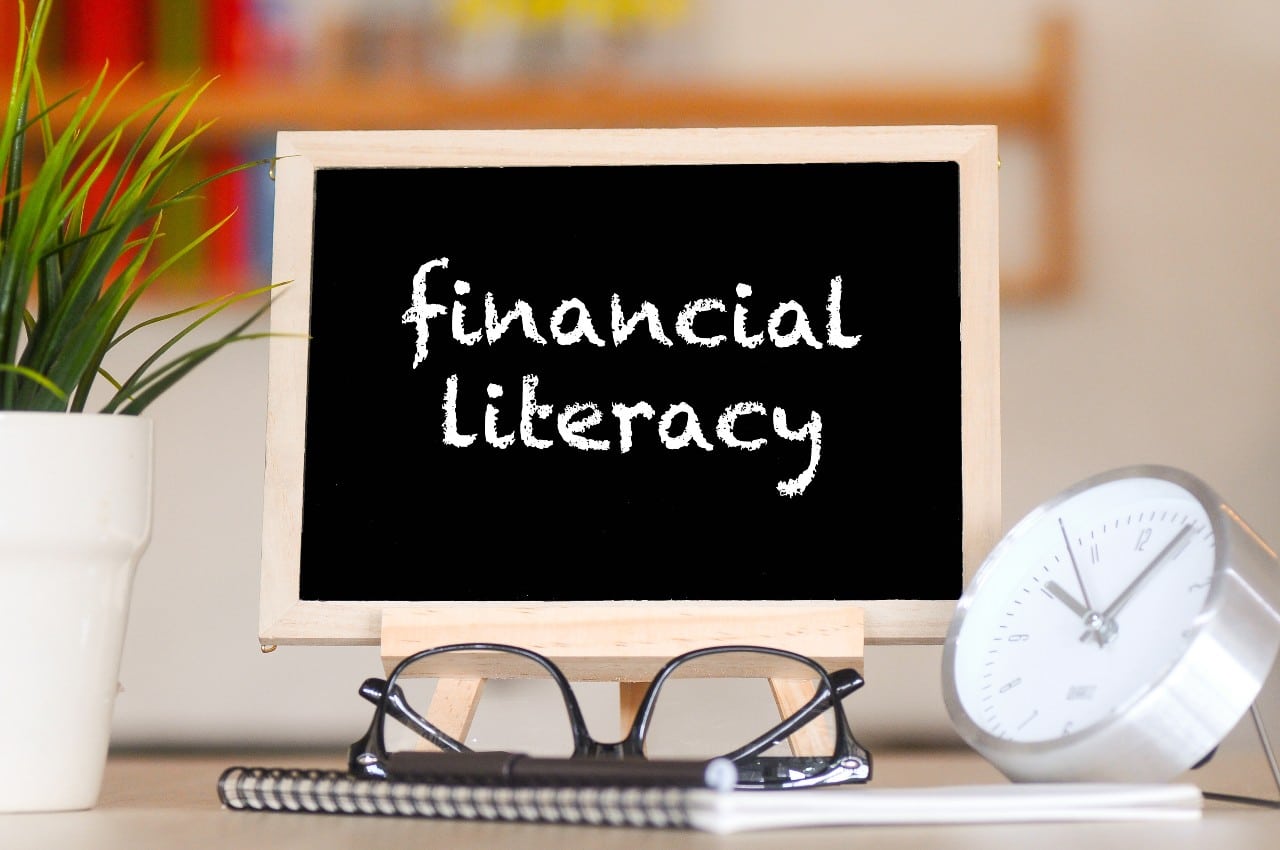November is Financial Literacy Month! Each year, the Government of Canada and the Financial Consumer Agency of Canada (FCAC) take time to raise awareness about the importance of financial literacy. It started 14 years ago and has since grown from Financial Literacy Month to the National Financial Literacy Strategy.
Each year Financial Literacy Month centres around a theme. This year, that theme is “Money on your Mind. Talk about it!” It’s asking Canadians to put the stigma of talking about money on notice and for good reason. While many tend to believe talking about money is a breeding ground for issues, research has shown the opposite. Having open discussions about finances actually improves financial literacy and, in turn, financial standings.
Where to start?
It can feel overwhelming and a little weird to go against the grain of something that is so ingrained in societal norms. This sort of headspace isn’t exactly conducive to trying something new. So we wanted to help by offering a place to start.
When trying something new starting somewhere not too close to home or personal can be helpful. We thought focusing on Canada in general instead of your personal finances fit those criteria. Being Canadians we relate to it and can use it to build connections, but it doesn’t require disclosing anything really personal.
How to start?
A lot of financial literacy research has been done across Canada and around the globe. Research has been done about everything from how financially literate people are in various countries to what kind of behaviours and attitudes people have about money. Below are some of the findings from this research. The idea is that you can use this information to ease yourself into a conversation about money. As you feel more comfortable you can talk about more specific and more personal topics.
Findings
Every three months TranUnion, one of our two main credit bureaus, releases findings about the overall state of household finances in various countries around the world. While specific topics change, each survey looks to discern how things are changing in the world of personal finances. Below are some of the findings from their latest survey done in the 3rd quarter of 2024. We’re highlighting how Canada compares to the rest of the world.
Optimism about household finances in the next year
| Canada | Global | |
| Pessimistic | 29% | 16.3% |
| Neither | 28% | 19.4% |
| Optimistic | 43% | 64.6% |
This data reflects how good people are feeling about how their finances are stacking up for the next year. Sadly, this data confirms what many Canadians are facing right now, financial struggle. Less than 1 in 2 of us are feeling good about our money situation. That’s a big difference from the rest of the world where almost 2 in 3 are feeling good.
If you’re one of these people who is struggling, what might comfort you is knowing that you’re not alone. A lot of people are in the same boat. This is encouraging when it comes to trying to be more open and learning about finances. There’s a good chance others you talk to will also be struggling. That common ground is a great place to start a healthy and impactful discussion.
Biggest household financial concerns
| Canada | Global | |
| Inflation | 44% | 36.5% |
| Housing | 20% | 14.7% |
| Jobs | 10% | 17.8% |
There are lots of things that can impact financial well-being. This iteration of the survey asked respondents to rank their top three. This chart reveals our top three; Inflation, housing, and jobs.
Inflation has topped the list of financial concerns for Canadians for years now. Findings show that we’re not alone. It’s a common concern across the world.
A lot of Canadians are worried about housing affordability. It was our second-highest-rated concern. There were lots of other countries that shared the same issue. Out of all the countries that had housing as one of their top-rated concerns we ranked it the highest.
Jobs ended up being the third highest concern for Canadians, though at a lower percentage than in the rest of the world.
Some of the concerns outside of the top three Canadians mentioned were COVID-19, recession, and interest rates.
A lot of people, when given the opportunity, like sharing what they’ve learned. Ask someone how they’ve been managing inflation and housing costs. You’ll be making them feel good and could gain you some valuable insights on what you can try yourself.
Debt and savings changes consumers reported in the last three months
| Canada | Global | |
| Cut back on saving for retirement | 15% | 11.6% |
| Increased usage of available credit | 15% | 18.4% |
| Paid down debt faster | 19% | 23.9% |
| Saved more for retirement | 11% | 14.2% |
| Saved more in emergency fund | 17% | 25.1% |
| Used retirement savings | 10% | 8.7% |
The chart above outlines different strategies people lean on to handle increased financial pressures. Some of these strategies are more financially sound than others. For example, saving more of an emergency fund is a financially healthy way to mitigate times of financial hardship. On the other hand, cutting back on retirement savings, while not the worst-case scenario, is not the most financially healthy option either.
What’s concerning is that the results showed that, compared to the rest of the participating countries, fewer Canadians added more to their emergency fund and more cut back on retirement savings. We also put less focus on paying down debt. Though, on a positive note, we were less inclined to use our credit.
This chart alone is a gold mine of financial conversation starters and opportunities to boost financial knowledge. For example, you could ask someone about what appealed to them about the financial strategy (paying down a credit card, adding to an emergency fund, using retirement savings, etc.) they chose over another one.
Type of new credit and loan activity planned in the next year
| Canada | Global | |
| New car loan or lease | 16% | 15.5% |
| New credit card | 46% | 35% |
| New mortgage, home loan or bond payment | 14% | 12.7% |
| New personal loan | 17% | 32.9% |
| Refinance mortgage, home loan or bond payment | 16% | 10.4% |
The TransUnion survey also wanted to look at what changes people see happening with their credit and loans in the next year. As you can see from the chart above there are lots of credit options available worldwide. The ones listed are the top five Canadians responded to from the list of 13 options on the survey. Most of the other options are about refinancing a debt rather than taking on new debt.
One of the most concerning things about this information is that in the next year, Canadians will be heavily focused on taking on new debt. That being said, this chart only reflects those respondents who said they would be making changes to their credit, not the whole group of Canadian participants. Even so, there’s an opportunity for people to make an alternative decision than taking on more debt. This is especially true because almost half of the respondents said they’d be taking on a new credit card, one of the highest-cost credit options on the list.
Wrap up
There’s another part to this year’s Financial Literacy Month theme, action. Organizers are asking us to commit to doing one action this month that improves your financial literacy. That one action could be building a budget, checking your credit score, or putting together a debt repayment plan. No matter what you choose, talking about it with others will help. We hope some of the information in this article will make it easier to get a conversation started.
If debt is what’s on your mind, we can help. Talk to one of our trained Credit Counsellors to find out how.










